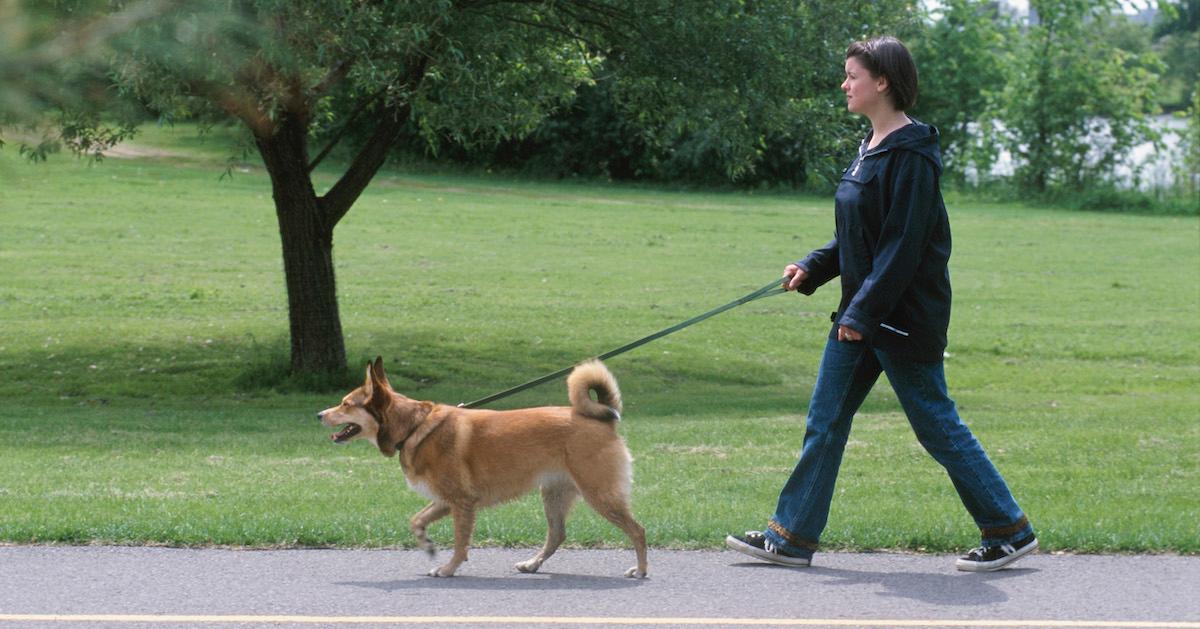Can a Dog Be Racist, or Is it Learned Behavior? A Vet Explains (Exclusive)
Updated Jan. 10 2024, 3:53 p.m. ET

The 1982 film ‘White Dog’ depicts a dog who is racist towards Black people.
In the 1982 horror movie White Dog, a white German shepherd attacks and kills only Black people — kind of like a racist Cujo. But can dogs be racist?
To learn if there's any truth to the theory that dogs can have racist mindsets, we spoke with veterinarian Dr. Alejandro Caos.

Can dogs be racist?
No, dogs can’t be racist the same way humans can, says Dr. Alejandro Caos, a veterinarian with The Vets.
"Racism is a social construct that involves biased attitudes, prejudices, and discriminatory behavior towards individuals of different races or ethnicities," and dogs don’t "possess the cognitive abilities to understand or engage in such behaviors," Caos tells Green Matters exclusively via email.
“Dogs primarily interact based on their own instincts, past experiences, and individual interactions with other dogs and humans,” says Caos. “They do not have the capacity for racial bias or discrimination as they lack the cognitive processes necessary for such complex social constructs.”
However, negative experiences a dog may have had with people of a specific race or ethnicity could cause them to be wary and even aggressive to other people with similar physical characteristics, Caos says. For example, a dog who was abused by a man may be timid or aggressive around other men.
“This is not racism but rather a conditioned response based on a specific negative experience,” Caos says.
Racism in dogs is not nature, it’s nurtured, according to research.
If your dog seems to show discriminatory aggression towards people of different ethnicities than yourself, it may be your fault, not the dog's.
A 2019 report titled “Human caregivers perceive racial bias in their pet dogs” looked into the possibility of racism in dogs by conducting two studies. In the end, the researchers found that the problem had more to do with the racist attitudes of a dog’s caregiver, be they conscious or unconscious perspectives, Psychology Today reported.
A dog parent may not consider themselves racist, but if they are uncomfortable around people of other races, their dog can sense that and may act accordingly. The study looked at both Black and white dog parents and found that white dog parents saw more positive behaviors in their dogs toward other white individuals. Black dog parents reported more positive behaviors of their dogs towards other Black individuals, per Psychology Today.
The study reported that the more social interaction a dog’s owner has with people of different races, the less likely the dog was to show any apparent racial discrimination, Psychology Today reports.
Animal advocacy nonprofit Faunalytics also reported on the 2019 study, and made an astute conclusion, writing: "In the same way that people say that there are no inherently more aggressive dog breeds, just dogs with poor upbringings, this study suggests that there are no 'racist dogs,' just dogs whose behavior is informed by past experience and mediated by their guardians."

And in February 2020, the journal History Workshop Journal published a study titled "Can Dogs be Racist? The Colonial Legacies of Racialized Dogs in Kenya and Zambia," authored by Josh Doble of the University of Edinburgh.
This study also found that dogs could be capable of developing racist tendencies based on their surroundings. "The intensity of the relationship between white minorities, their canine pets and the surrounding African population points toward the uncomfortable conclusion that in the heightened racial environments of decolonizing settler Africa, dogs could be made to be racist," reads the abstract of the study.
Still, though, as Dr. Caos reminds us, racism is a social construct, and not one that dogs are capable of understanding in the way that humans do. So while some dogs may seem to be racist, they are actually just acting in response to what they have observed and experienced.

How can you prevent “racist” behavior in your dog?
If your dog acts aggressive to anyone, regardless of the person's race, gender, or age, it is a serious matter that needs to be dealt with as soon as possible. Contact a professional dog trainer or pet behavior specialist to address the behavior.
You may want to also look at your own behavior, and consider if you act differently towards people of different ethnicities in front of your dog.
Caos tells Green Matters: “As responsible pet owners, it is our duty to expose our dogs to positive experiences with a diverse range of people to ensure they develop appropriate socialization skills and do not exhibit fear or aggression based on physical appearance.”
CORRECTION: This article has been updated to reflect that Dr. Caos' first name is Alejandro, not Alexander.
This article, originally published on June 6, 2023, has been updated.